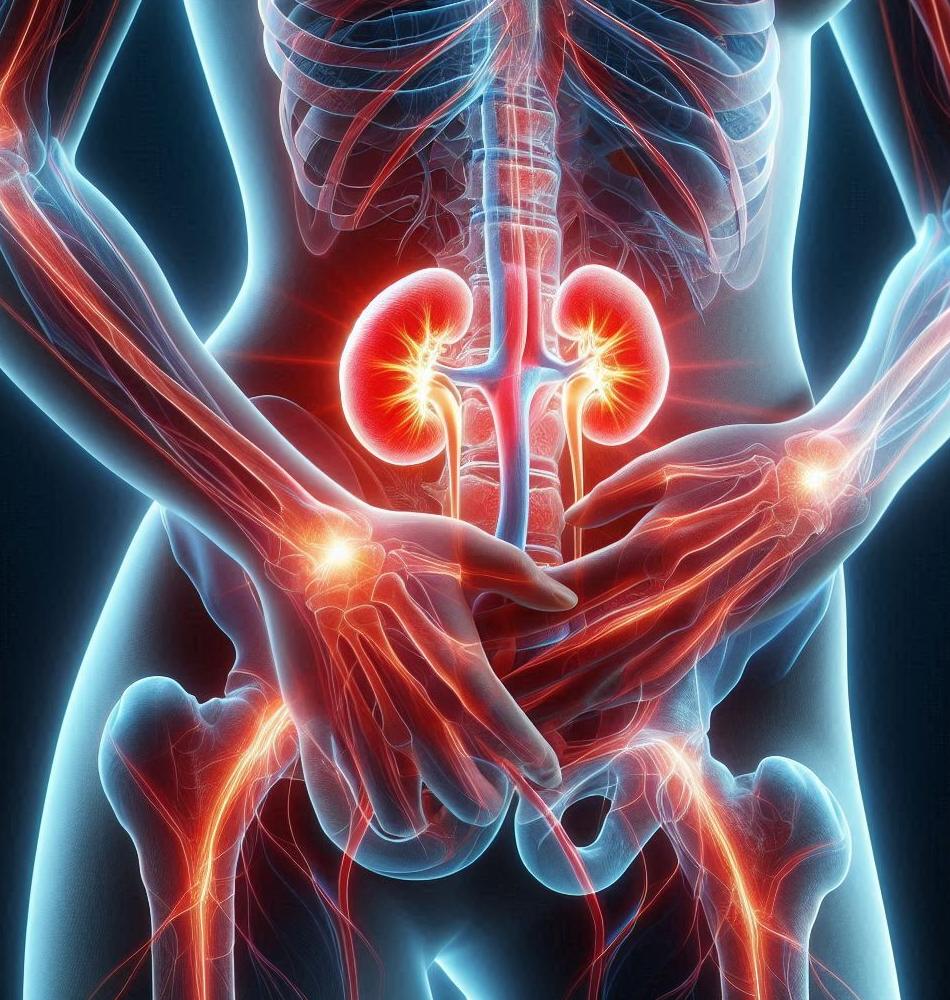Understanding Kidney Pain: What to Expect? 🫀
Kidney pain can arise for a variety of reasons, and the sensations can quite uniquely vary from person to person. For someone unfamiliar with this type of discomfort, the experience might feel puzzling. Let’s take a dive into understanding what kidney pain feels like, the common causes, and when it might be time to consult a healthcare provider.
Recognizing the Symptoms of Kidney Pain 🩺
The symptoms associated with kidney pain can be diverse and sometimes misleading, depending on the underlying cause. Some characteristics of kidney pain include:
Location of Pain? 🚩
Unlike general back pain, kidney pain is often localized:
- Typically felt in the area just below the ribs, near the spine
- Can radiate to the abdomen or groin
- Often described as a deep aching or sharp, stabbing sensation
Accompanying Symptoms? 📊
Kidney pain might not be solitary:
- Pain may be accompanied by nausea or vomiting
- Possible changes in urine, such as blood or discoloration
- Fever or chills in cases of infection
- Frequent urination or urgency
Common Causes of Kidney Pain? 🦠
Understanding the root causes of kidney pain is essential, as they can range from mild to serious health concerns. Here are some of the most common causes:
Kidney Stones? 💎
Kidney stones are hardened deposits that form in the kidneys, and they often cause excruciating pain. Symptoms could include:
- Wave-like pain that fluctuates in intensity
- Pain that radiates from the back to the groin
- Sudden onset of sharp pain
Kidney Infection? 🔬
A kidney infection, also known as pyelonephritis, can occur when bacteria enter the kidney. The sensations might include:
- Dull ache that feels deeper than back pain
- Increased sensitivity to touch in the kidney area
- Associated fever and discomfort
Polycystic Kidney Disease? 🌀
This genetic disorder causes fluid-filled cysts to form in the kidneys, leading to pain. Signs might encompass:
- Chronic pain that can feel dull
- Pressure or heaviness in the lower back
Trauma or Injury? 🏥
Physical trauma to the kidney area, from accidents or contact sports, can result in kidney pain, which could manifest as:
- Severe immediate pain at the time of injury
- Swelling or tenderness in the affected area
When to Seek Medical Help? ⚕️
Many types of kidney pain may require immediate medical attention. Here are signs that indicate it’s time to consult a healthcare provider:
Emergency Signs? 🚑
- Severe, sudden onset of pain
- Blood in urine
- High fever accompanied by chills
- Unmanageable pain that does not respond to over-the-counter medications
Scheduled Check-Up? 📅
If the pain is mild but persists or is recurrent, consider scheduling an appointment with a healthcare professional to explore the underlying causes.
Self-Care for Kidney Pain? 🌱
If kidney pain is mild, there are some self-care options that may help alleviate discomfort:
Stay Hydrated? 💧
Drinking plenty of water can assist with kidney function and may help flush out small stones.
Use Heat Therapy? 🔥
Applying a heating pad to the affected area can provide relief and ease muscle tension.
Over-the-Counter Pain Relief? 💊
Nonsteroidal anti-inflammatory drugs may help manage mild pain. Follow the recommended dosages.
Frequently Asked Questions About Kidney Pain? ❓
- What does kidney pain actually feel like?
- How long does kidney pain last?
- Can kidney pain be confused with back pain?
- What at-home treatments can alleviate kidney pain?
- Are there any lifestyle changes that can prevent kidney pain?
Living with Kidney Pain? 🦋
Dealing with kidney pain can be daunting. However, it often offers a window into our body’s condition. It is vital to listen to your body and not dismiss these sensations. Tracking pain, symptoms, and any triggers can prove helpful for you and your healthcare provider when discussing treatment options.
Conclusion: Awareness is Key? ✅
Understanding what kidney pain feels like is crucial for effective management and intervention. The sensations can be complex, and while some causes are innocuous, others may require immediate medical attention. Maintain vigilant awareness of your body, and should any discomfort arise, take it seriously and consult a medical professional to ensure proper diagnosis and treatment.
.png)





